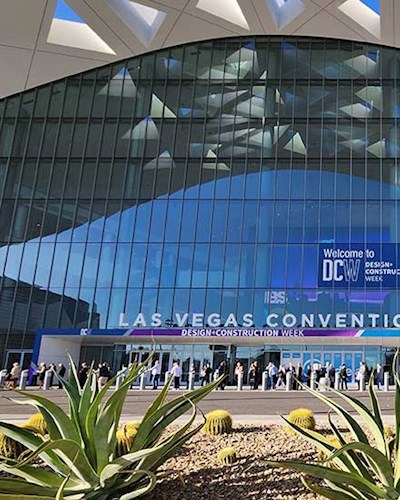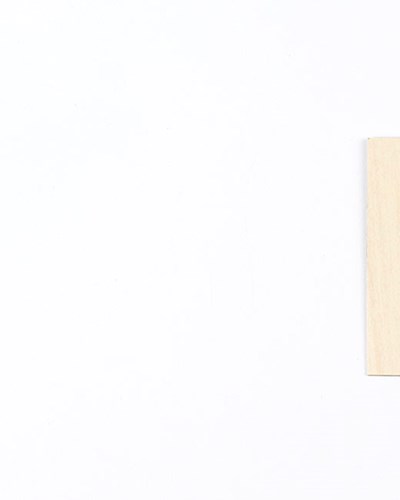Three Trends Impacting Post-Pandemic Hospitality Design
Three Trends Impacting Post-Pandemic Hospitality Design
Our design team looks at the trends shaping post-pandemic expectations for hotels, restaurants and other venues. Here’s what designers should keep in mind to ease guests’ concerns.
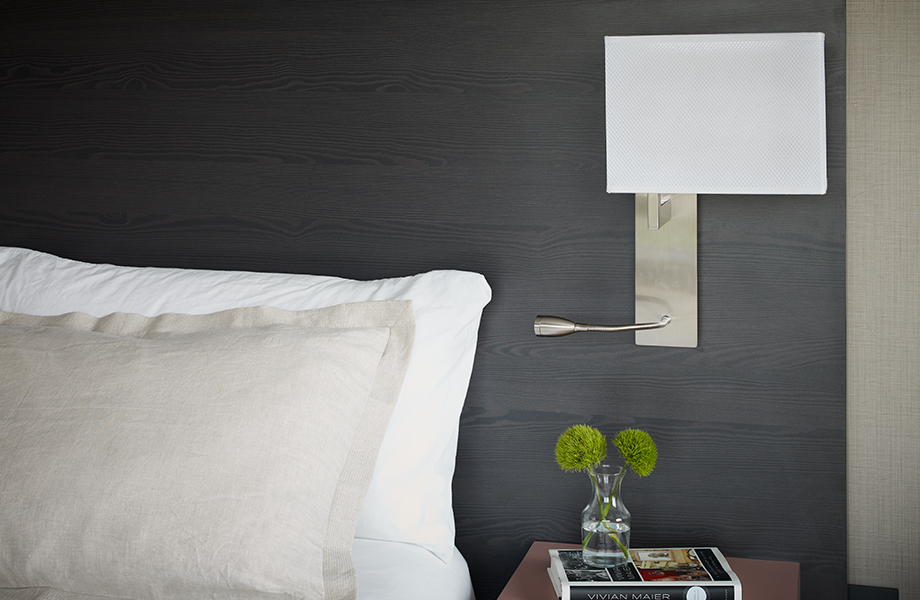
New World, New Expectations
After many months of missed vacations and virtual business meetings, many people are venturing out into the great unknown. They’re ready to explore shared spaces once again. That said, the world has definitely changed as a result of the Covid-19 pandemic. Many consumers and business travelers have new expectations when it comes to how hospitality properties should address space utilization, cleanliness and overall design.
We sat down with Renee Hytry Derrington, Managing Principal Design, Formica Corporation, to get her take on the evolving hospitality design scene. Here are the top three trends she urges designers to consider as hotels, restaurants and other venues reconsider their approach to surfacing and making guests feel comfortable.
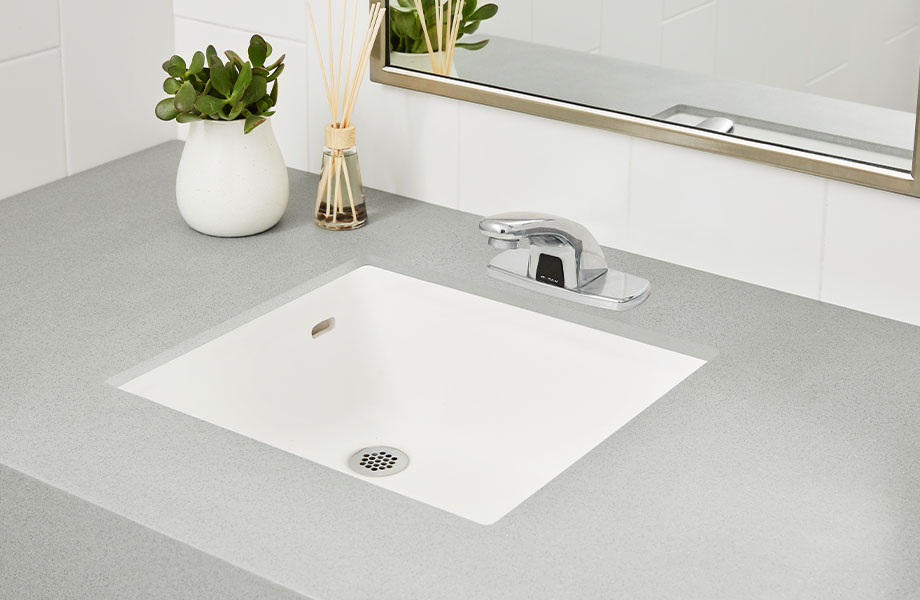
1. Materials Mindfulness + Sensational Surfaces + Palpable Cleanliness
Ease of cleaning has always been important in hospitality. But now it’s critical. Designers have to consider the best ways to achieve beautiful surfacing that can be easily cleaned and maintained. Solid surfacing is an excellent choice for surfaces that frequently get wet, such as bathroom countertops. These seamless, nonporous options offer a hygienic alternative to finickier surfaces such as natural stone that require sealing. Bonus: Integrated solid surface sinks reduce the risk of bacteria hiding in seams.
Explore the Everform™ Solid Surface Collection to see which of the 38 options could round out your clients’ design concept while keeping hygiene front and center.
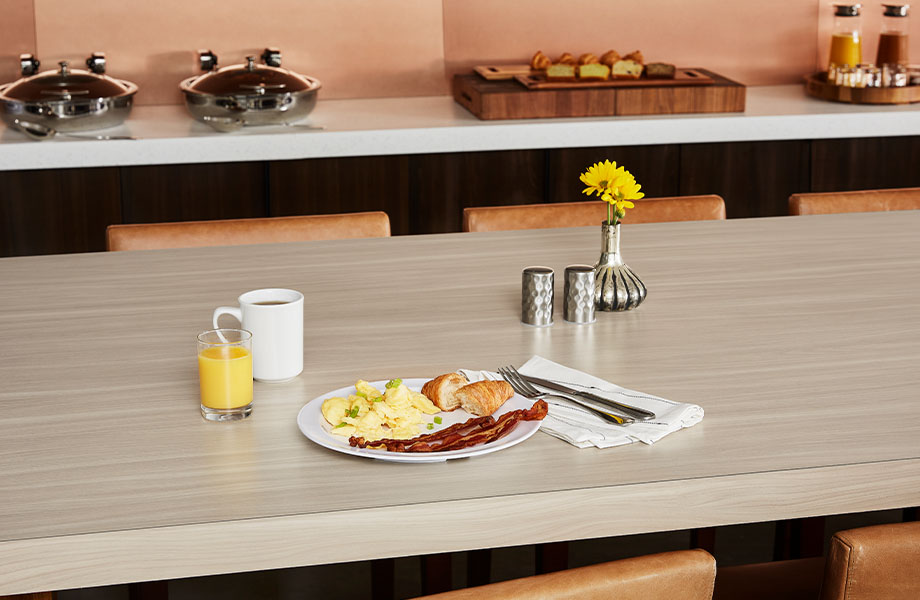
2. Light Neutral Woodgrains to Visibly Represent New and Clean
Lighter woods have been a staple in Scandinavian design for years, and many hotels and other properties have been using neutral woodgrains and color schemes to create spaces that signify a fresh vibe. Woodgrain laminate offers many advantages over natural wood, including cost-effective design realism and ease of cleaning and disinfection. In fact, woodgrain laminate in light shades such as elm, ash and maple can define modern surfaces for furniture, walls, doors, countertops and more while withstanding strenuous cleaning protocols. Bonus: Woodgrain laminate features color stability over time to make future additions a snap.
Explore the dozens of beautiful patterns in the Formica® Woodgrain Laminate Collection.
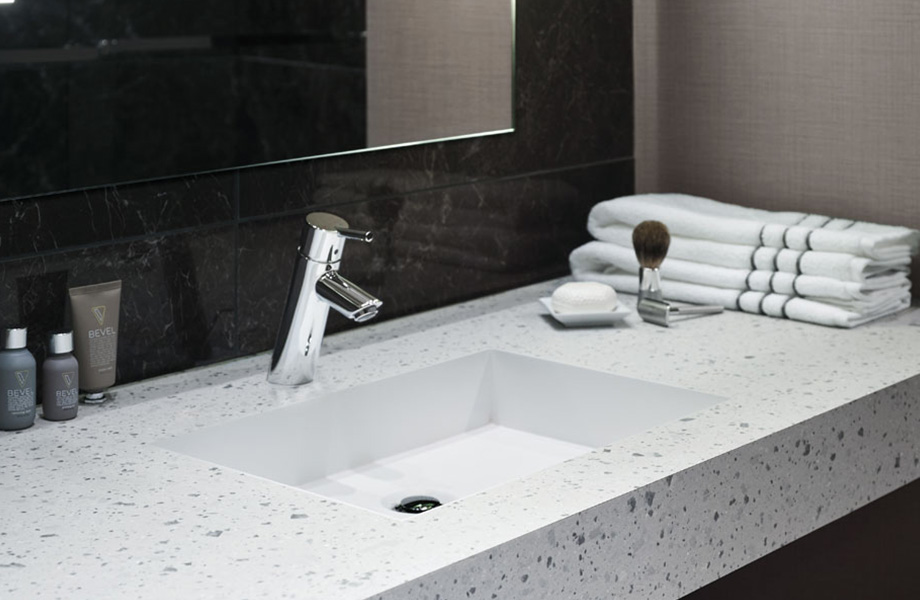
3. Sustainability and Eco-Friendly Practices and Surfaces
The environmental impact of design choices continues to be a key driver for many properties looking to support their own corporate sustainability practices and also tout their green choices to savvy guests. Paper-based high pressure laminate remains an exceptional option for achieving sustainable design. In fact, Formica Corporation is the only laminate company in the world to offer unique eco-friendly décor papers such as the Paper Terrazzo series, Recycled Kraft series and Reclaimed Denim Fiber, each of which incorporates sustainable or recycled components. Bonus: These unique, FSC®-certified patterns make a stunning design statement in addition to being easily cleaned.
Learn more about Formica Corporation’s commitment to transparency in its sustainability practices, including our in-depth 2021 Sustainability Position Paper.

